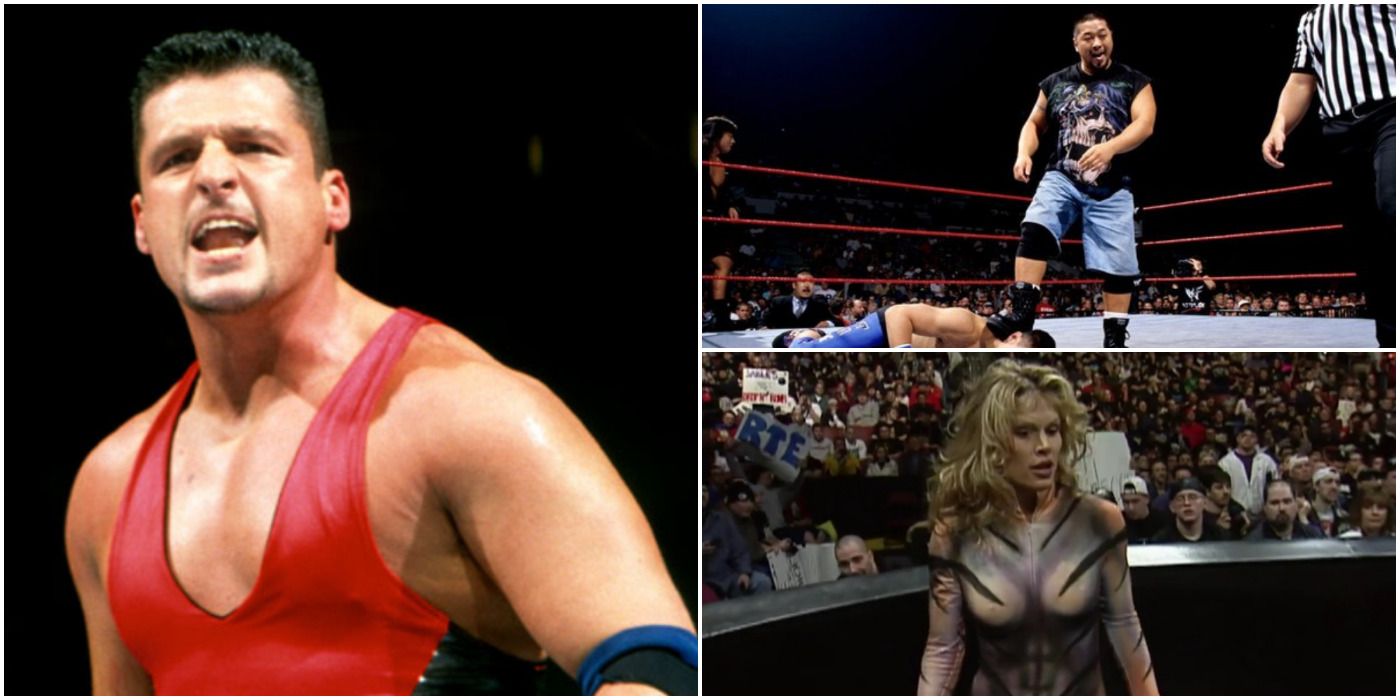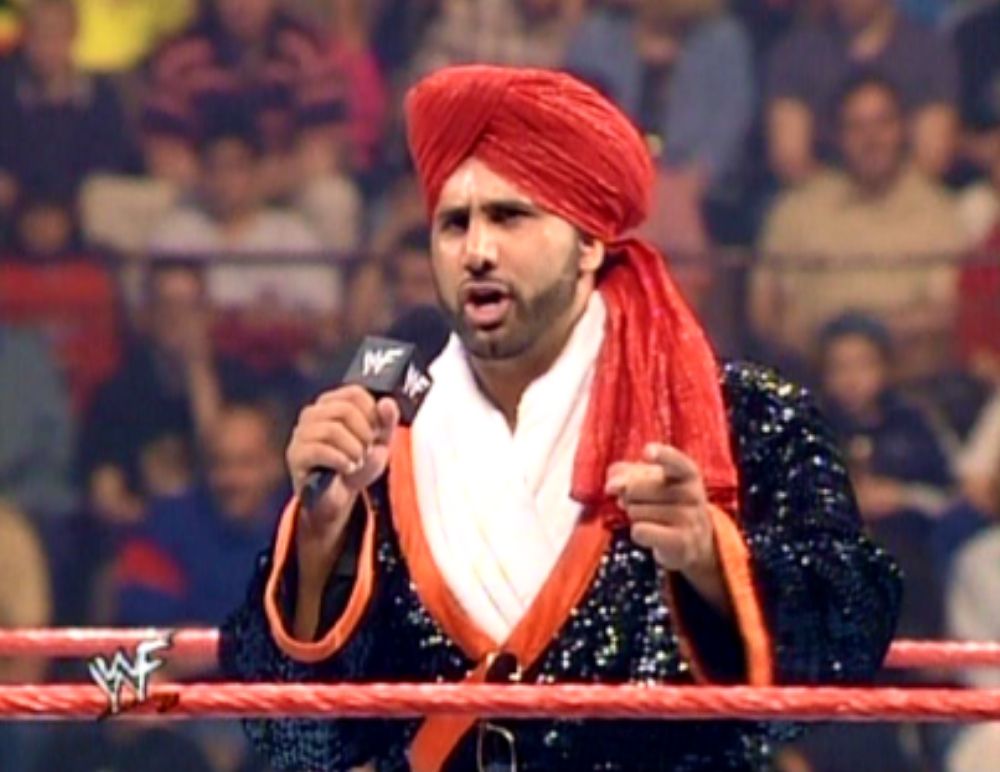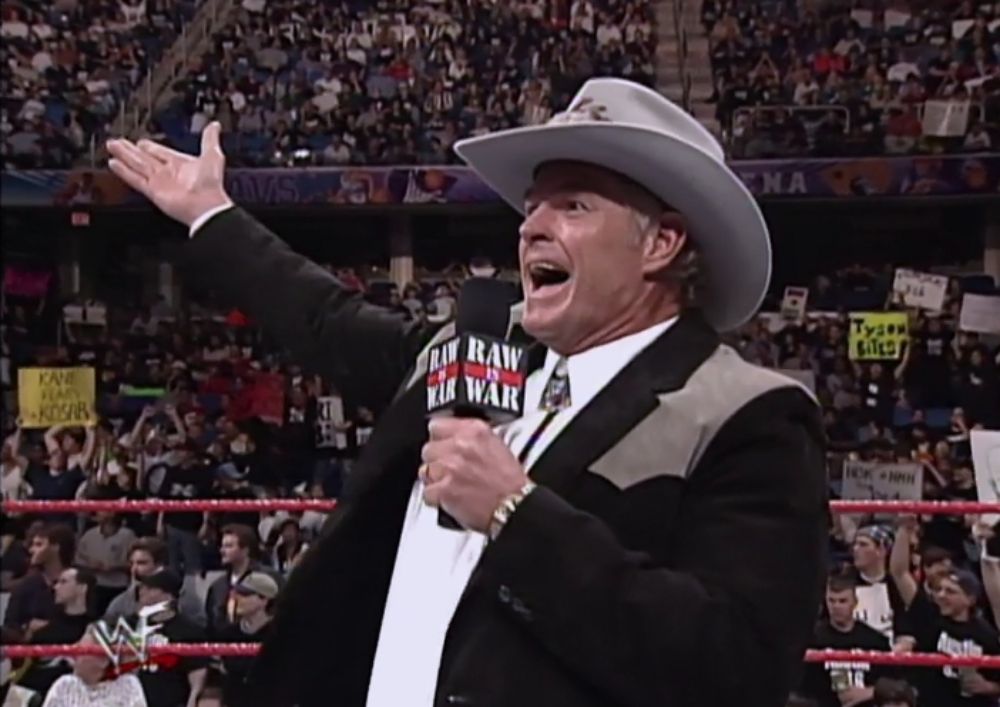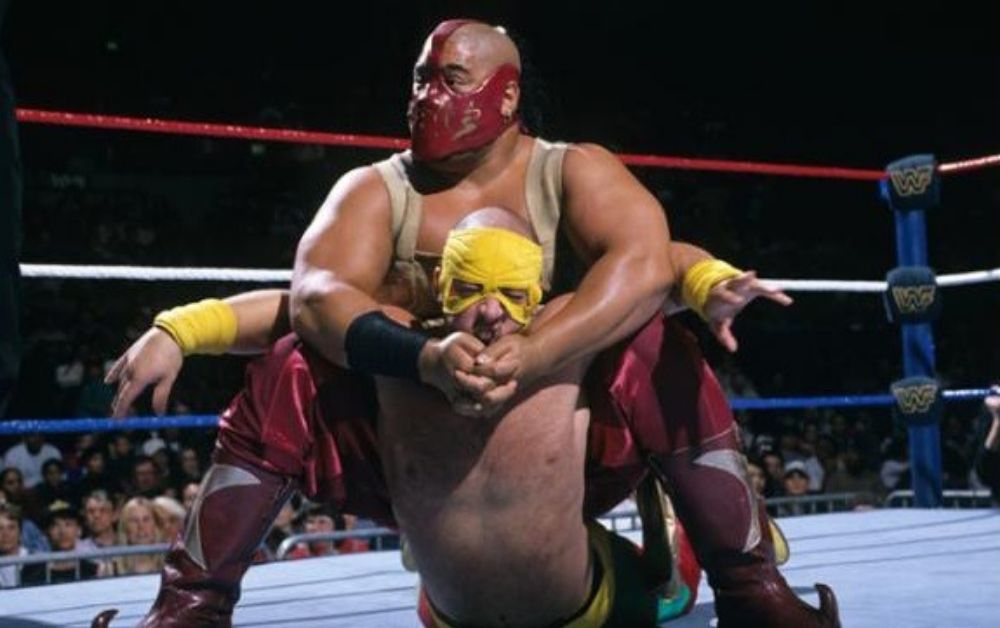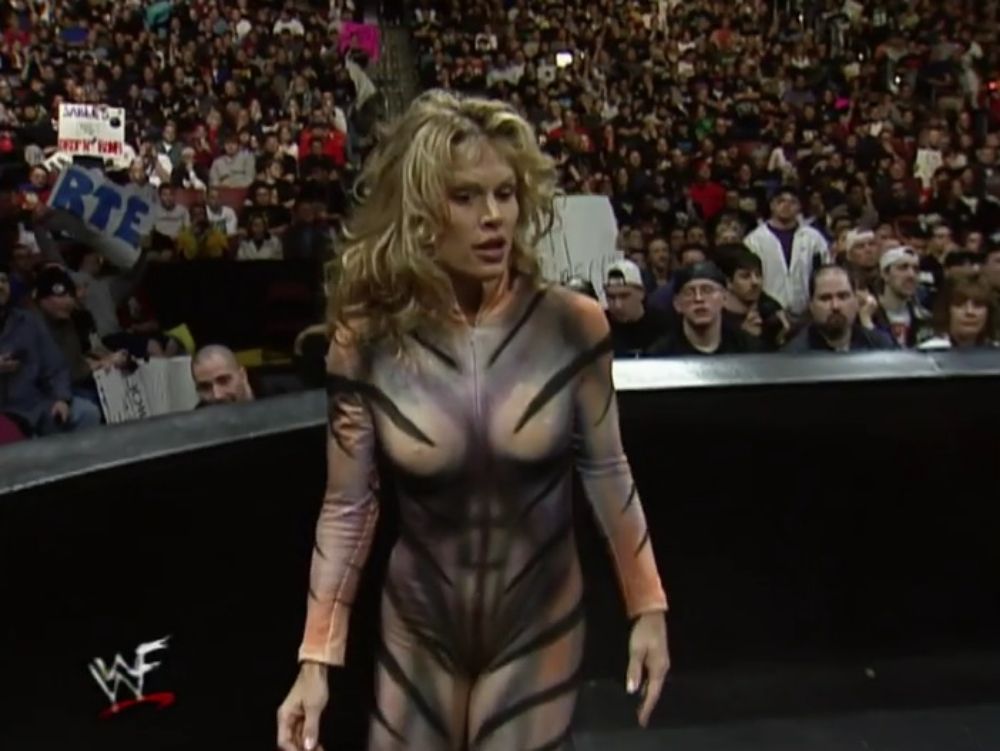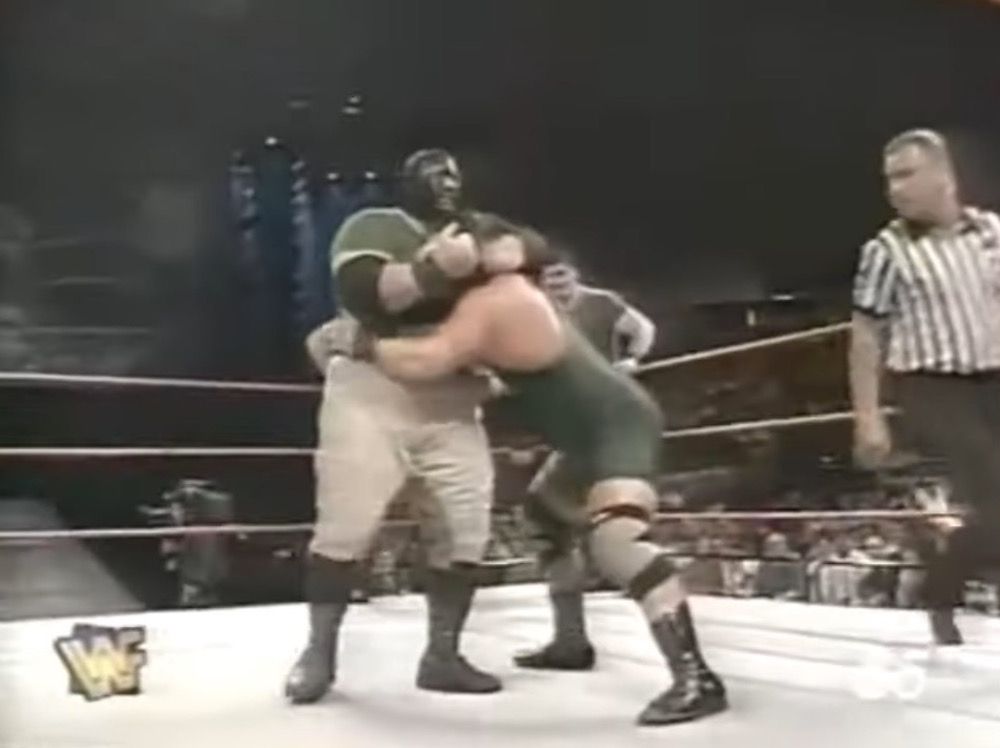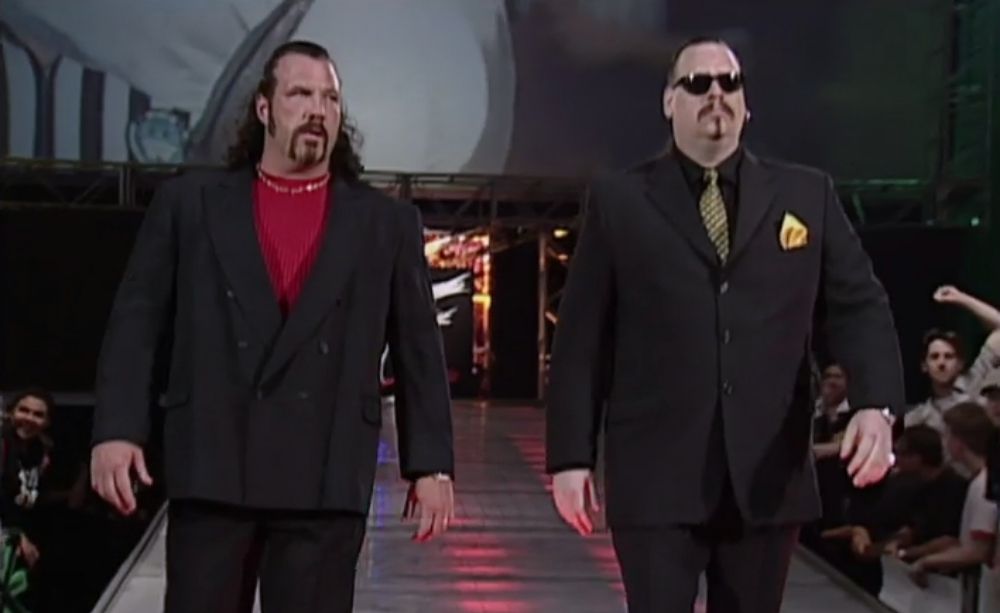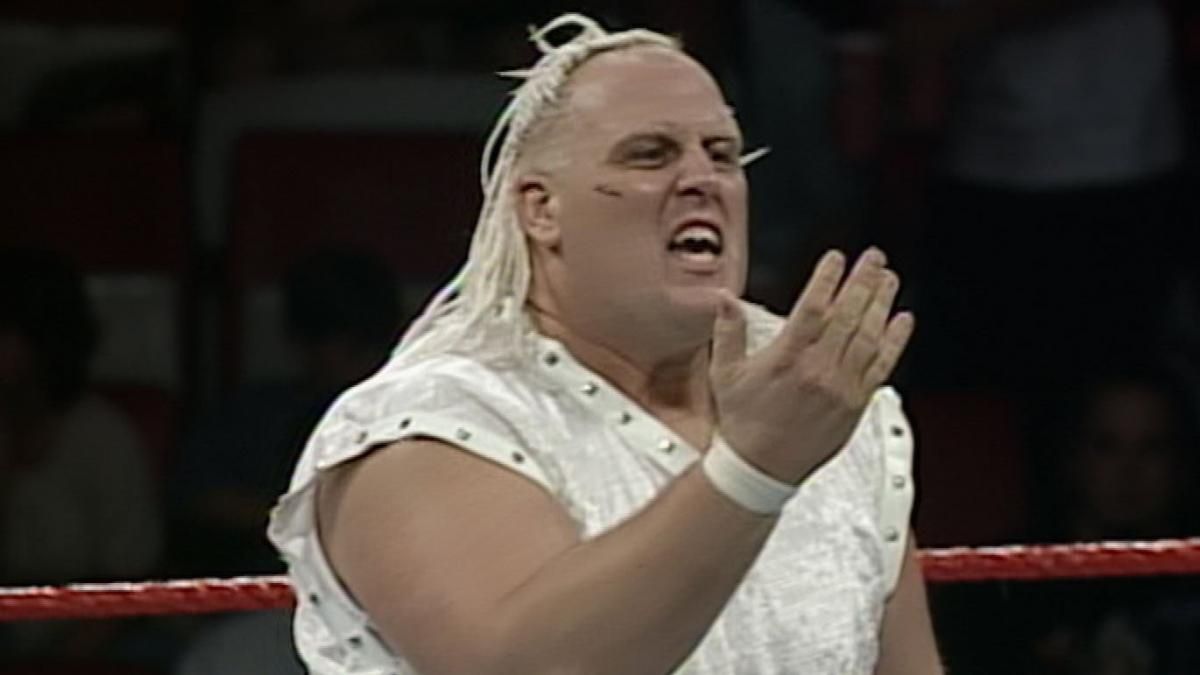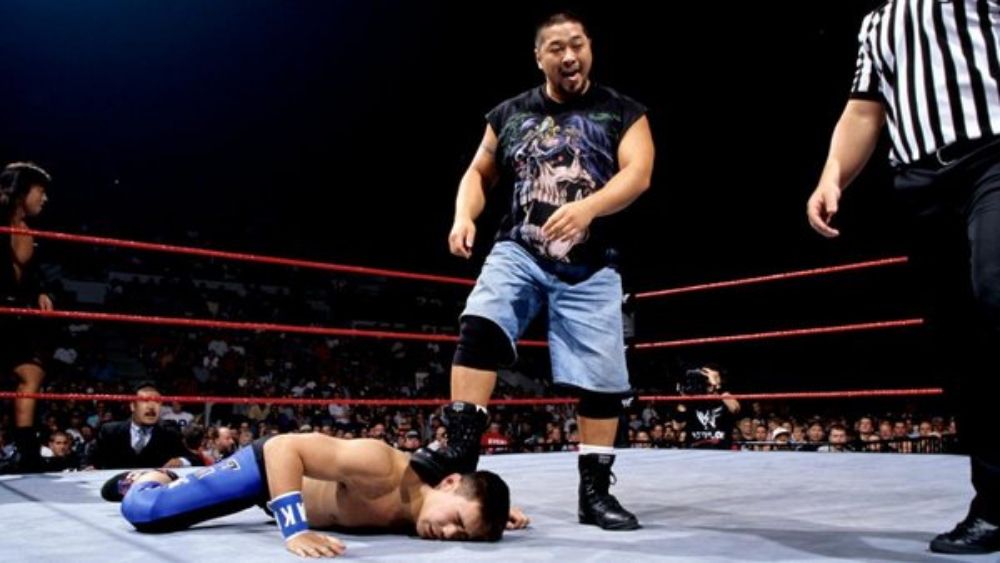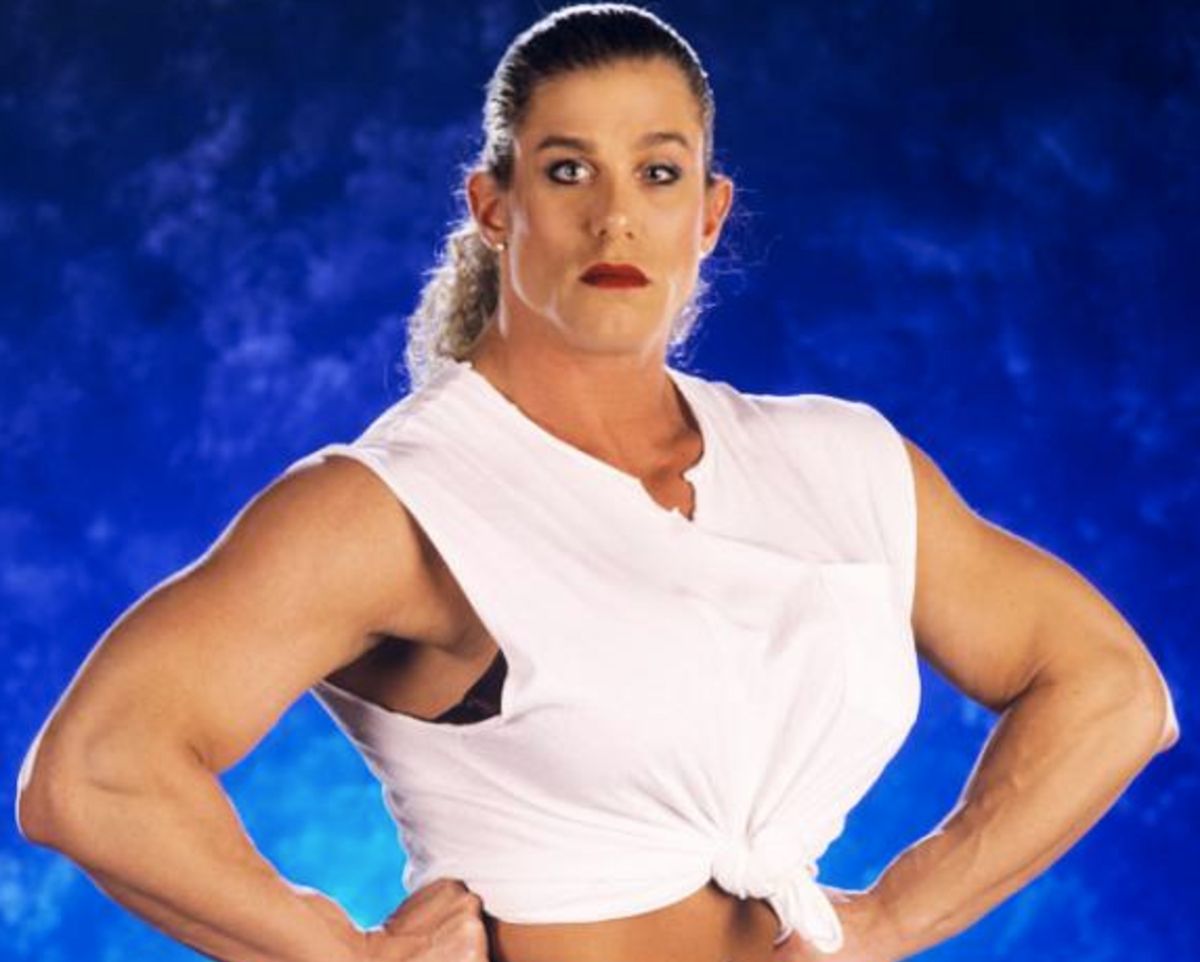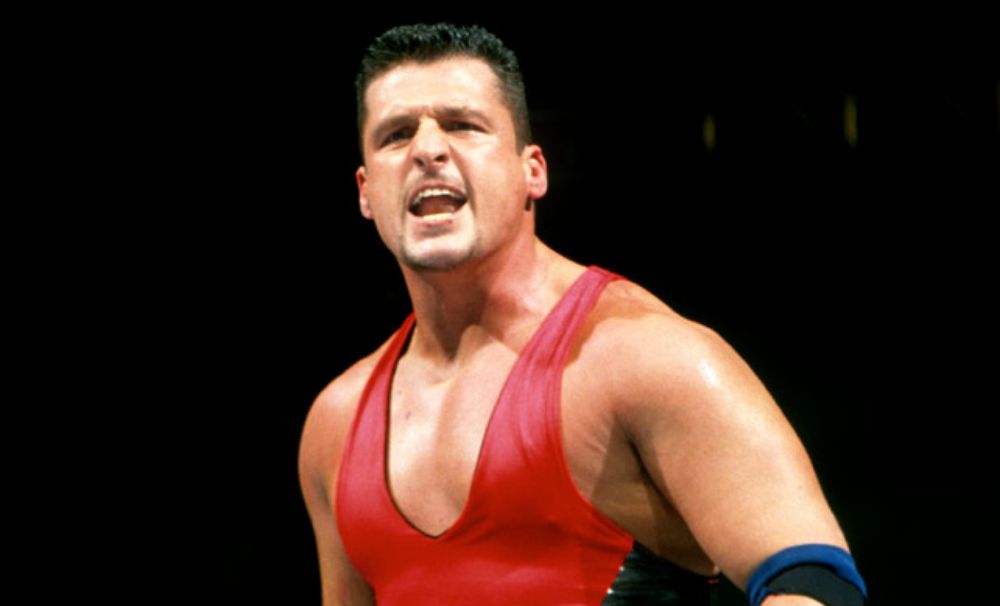WWE’s Attitude Era was the most popular the company had even been — even more popular than the Hulk Hogan days, somehow — and full of unforgettable stars. When it comes to bad guys, fans booed icons like The Rock (sometimes), The Undertaker, and even WWE boss Vince McMahon out of the building. However, there were other bad guys who weren’t as fortunate.
Even a big period like the Attitude Era has its misfires, so let’s take a look at the bad guys fans have likely forgotten about, including some very familiar faces — some of whom are still working today.
10 Tiger Ali Singh
The son of heel wrestler Tiger Jeet Singh, Tiger Ali Singh signed to WWE in early 1997, and by April defeated Owen Hart to win the Kuwait Cup tournament — weeks before his televised debut. Working the same kind of rich guy gimmick used by Ted DiBiase before him and Alberto Del Rio after him, Singh had a personal servant named Babu. Appearances on Raw were sporadic, and eventually Singh became the manager of the tag team Lo Down before being sent to Puerto Rico where he suffered a career-ending injury in 2001.
9 Tennessee Lee
WCW fans, of course, will recognize the man above as Col. Robert Parker, a parody of Elvis Presley’s manager Col. Tom Parker and heel manager in the 1990s. In WCW, he ran his own stable, The Stud Stable, and once fell in love with Harlem Heat’s Sister Sherri. In 1998, he showed up in WWE as Tennessee Lee, manager of country music heel Jeff Jarrett as well as Southern Justice (see below), but ended up getting released five months later.
8 The Sultan
Over the course of his 12 years with WWE as an in-ring competitor, Rikishi had a number of gimmicks including being one half of The Headshrinkers during the Golden Era, being a positive role model in the New Generation Era, and being a dancing sumo wrestler in the Attitude Era. But from between those last two gimmicks, he worked under a mask as a foreign heel named The Sultan.
Managed by The Iron Sheik and Bob Backlund, The Sultan lasted from 1996 to 1998, but never really accomplished much save for unsuccessfully challenging Rocky Maivia for the Intercontinental Title at WrestleMania 13.
7 Tori
After spending the early to mid 1990s wrestling some legitimate legends of Joshi in All Japan Women’s Wrestling as Terri Power, Tori made her WWE debut in 1998 as an obsessive fan of Sable. After they had a match at WrestleMania 15, Tori struck out on her own, eventually challenging Ivory for the Women’s Championship in what would become the first-ever women’s Hardcore Match in the company. After becoming Kane’s on-screen girlfriend, she would turn heel by dumping him for Kane’s tag partner, X-Pac, joining D-Generation X in the process.
6 Tank
Initially introduced in the United States Wrestling Association, The Truth Commission was a stable of South African mercenaries playing off of the real-life Truth and Reconciliation Commision that was happening in the country at the time. Fans may remember members of the group like The Interrogator (a.k.a. Kurrgan) and Recon (a.k.a. Bull Buchanan), but less remembered among them is Tank. Previously seen in 1995 WWE as Mantaur, Tank only wrestled a couple of televised matches alongside Recon and Interrogator on Shotgun Saturday Night.
5 Southern Justice
Tag team specialists Dennis Knight and Mark Canterbury underwent a number of gimmick changes throughout the 1990s. Previously known in WCW as (respectively) Tex Slazenger and Shanghai Pierce before resurfacing in WWE as pro wrestling pig farmers The Godwinns, in 1998 the two were repackaged as Southern Justice, a pair of hitmen in suits. Working under their real names, Southern Justice’s big moment would be as henchmen for Jeff Jarrett in his feud with D-Generation X. After Canterbury was sidelined by an injury, Knight became The Undertaker’s lackey, Mideon.
4 Key
For wrestling fans who felt that WWE needed a resident drug dealer, there’s Key. Following his infamous angle with the Legion of Doom, Droz organized a trio of “seedy underbelly” figures including Key and a tattoo/body modification artist in Prince Albert. Together, they’d wrestle a single match on a 1999 episode of Shotgun Saturday Night.
When a feud with The Godfather was taken off the table due to Godfather’s injury, Key disappeared from WWE TV, moving on to ECW. There he had an infamous incident with New Jack that led to a shoot retaliation in 2002.
3 Dick Togo
Fans may remember Japanese comedy jobbers Kaientai — namely Taka Michinoku and Funaki — as well as the group’s feud with Val Venus, but it may have slipped their minds that Kaientai was a full-on stable when it was initially introduced. Among the group’s members was Dick Togo, who stuck with the group for most of 1998 before Kaientai got whittled down to a duo. Of course, Togo at this point is a veteran of the game, and can now be seen in New Japan Pro Wrestling where he backs up EVIL as part of the House of Torture sub-faction of Bullet Club.
2 Nicole Bass
Trained at ECW’s wrestling school, bodybuilder Nicole Bass performed for ECW as well as Japan’s Neo Japan Ladies before appearing in WWE in 1999. There, she was cast as Sable’s bodyguard, debuting just in time for Sable’s title match against Tori at WrestleMania 15. After Sable quit the company, Bass was involved with feuds with Debra and Jeff Jarrett as well as partnerships with Val Venis and Ivory. However, Bass would soon quit WWE, later suing the company for sexual harassment.
1 Just Joe
Hailing from Toronto, veteran Joe E. Legend was actually partners with Edge, Christian, and Rhyno on the Canadian indie scene, but had no such success when he was brought in to WWE. Upon signing to WWE in 2000, Legend made appearances as “Just Joe,” whose whole gimmick involved playing messenger between other wrestlers in backstage segments in order to instigate fights. His own matches were entirely relegated to minor show Jakked, and Joe would be released in 2001.

